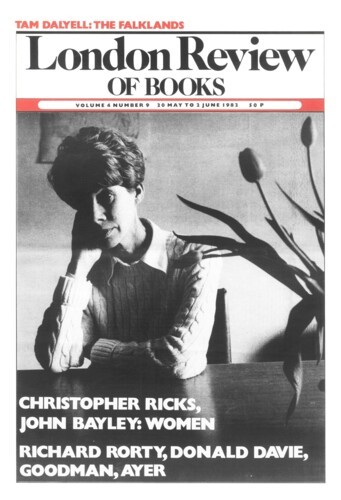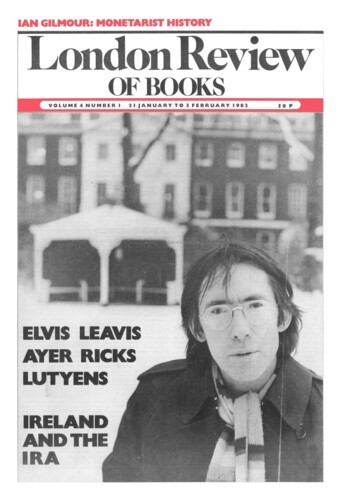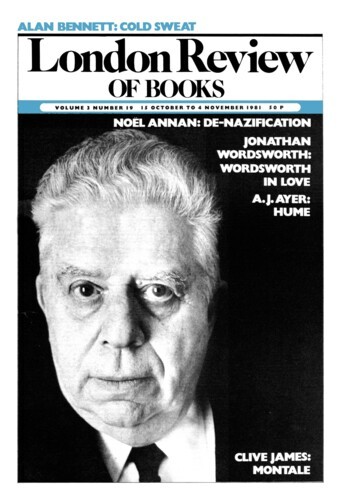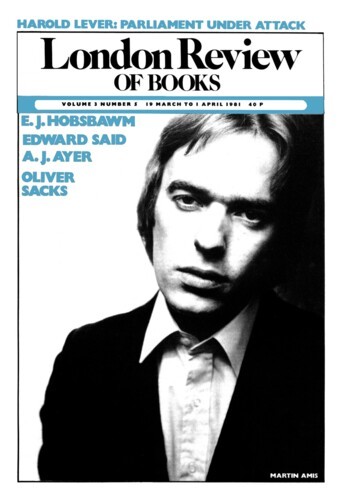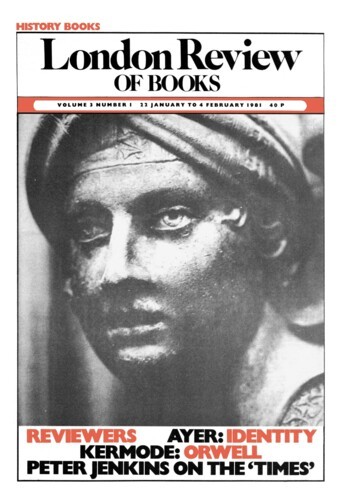Koestlerkampf
A.J. Ayer, 20 May 1982
It is not easy to see what purpose this book is meant to serve. Koestler himself has written two excellent works of autobiography, An Arrow in the Blue and The Invisible Writing, and two others, The Spanish Testament and Scum of the Earth, of which the main interest is autobiographical. Mr Hamilton admits to drawing heavily upon these works, but does no more than summarise their contents in a less forceful style than Koestler’s own. His prolongation of the story beyond the year 1940, where Koestler abandons it, is mainly devoted to Koestler’s politics, with some side-glances at his scientific and philosophical pretensions. It throws little further light upon his character and apart from diffusing an aura of reverence makes no attempt to assess his contribution to literature.
